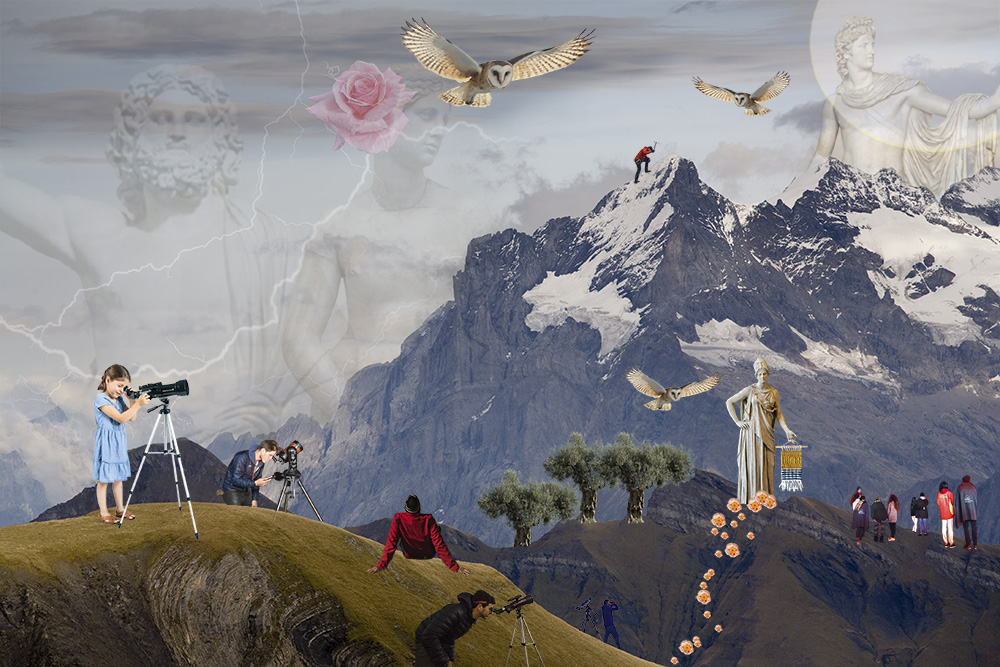Possibly my favourite line in Nan Shepherd’s The Living Mountain is this: “I like the unpath best.”
It’s a quotation from a child: Shepherd doesn’t say it.
The highest place I’ve walked is in the Swiss Alps where it’s hard to breathe. It’s an alarming experience. Mountaineers presumably get used to it, when they don’t carry oxygen, and there were people beside me who were. Your breathing has to be slower and thinner like the air. This makes you panic, because you don’t know what’s happening.
Unless you’re a mountaineer, you’re never at the highest point in the Alps. But it’s relative, for example at the Schilthorn observation platform or Aletsch Glacier reached with a train; roughly 3,000 and 4,000 metres respectively. You can look up from those places – at the gods you might say – and with a huge descent below.
There are two moments when I’ve been psychically disturbed about danger. In the early hours, more tired than I realised, I was confused at a junction and for several minutes was driving the wrong way down a motorway. Cognitively, I didn’t know what was happening. Then there was a feeling sometimes described as hairs standing on the back of your neck. It’s not literally so, but is an accurate description.
The other time was at Aletsch. I wandered away from the path for photographs and suddenly felt uncomfortable. What if this is not a snow field but a cornice which could collapse? I was inexperienced, and there was no one to advise. Everyone else was on the path twenty minutes away.
The facts of height are existentially different. Leave the path and you encounter the unknown, which is not entirely physical. Nan Shepherd speaks of elementals in her book. “I am fey again” she says, free from society. With a fey idea for Conceptual Art I imagine Zeus, King of the mountains, accompanied with Aphrodite, Apollo, and Athena or Minerva.
Athena is probably my favourite Greek deity. She intervenes in human affairs, not the only one, but for the purpose of balance and wisdom. “The owl of Minerva” wrote Hegel “takes its flight at dusk.” When things get bad, and dark comes next, intelligence arrives with a night seeing owl.
Athena is part war goddess, part wisdom goddess, and got into a dispute with Arachne about who could weave the best. She fights, advises, weaves, and has an owl. What more do you want? Her tree is the olive, and there’s a flower named after her: the Athena Peony.

